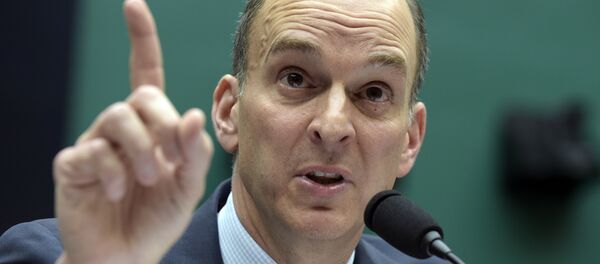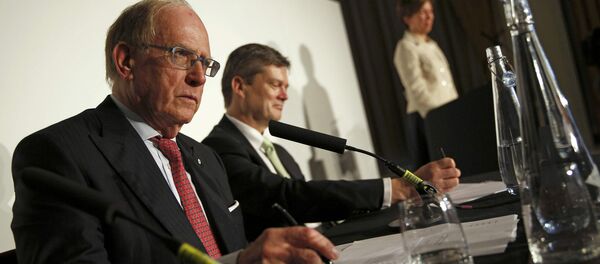Sputnik: How Much of a turning point is WADA's decision in this long-standing doping controversy?
Gregory Ioannidis: To a certain extent, I was not surprised, although the latest development does serve to illustrate once again that this is another situation that shows clearly the ineffective role of self-regulation in the organization and administration of anti-doping.
Sputnik: What is the reason behind WADA's exoneration of RUSADA now? It certainly seems strange, given how vehemently they wanted to continue the restrictions against Russia as recently as six months ago.
Gregory Ioannidis: There may be a recognition that this lengthy ban might have been unfair against innocent Russian athletes who had no opportunity to participate in major events.
At the same time, it needs to be understood that such a listing of the suspension is conditional upon certain criteria. Such criteria obviously need to be observed. I fear that if Russia doesn't follow or observe the specific established criteria, the ban may be re-imposed. This is something that needs to be considered very carefully by those who run Russian sport, and those who control the anti-doping agencies in Russia.
Sputnik: Recently, disgruntled Russian doping whistleblower Grigory Rodchenkov said that lifting the suspension of RUSADA would be 'catastrophic.' Have you any comment on that?
Gregory Ioannidis: Obviously, because of his previous association with the Russian Anti-Doping Agency, his views have to be respected and they have to be taken into consideration. However, if fairness and justice are going to be observed, obviously the gentleman has to come forward, and he has to be cross-examined based on the evidence he has produced or is going to produce.
I have to make it clear here that I'm not really dismissing the right of athletes to feel angry and to feel let down. Equally, I cannot accept, in the name of an ambiguous moral and emotive crusade, that innocent Russian athletes have to suffer because some of their compatriots violated rules. Obviously, those responsible have been or will be punished. There is no legal or moral justification in punishing innocent Russian athletes by banning the whole country from international competitions.
Sputnik: After the last Winter Olympic Games there was a lot of bad feeling, not just within the Russian national team, but within many countries and global sporting audiences regarding the validity of WADA moving forward. It appeared then to be a broken governing body that needed to be revamped. Do you have any thoughts on that?
Gregory Ioannidis: To a certain extent, yes. WADA is trying to do the best it can, but you have to actually consider the fact that in certain situations, its stance in terms of funding is quite questionable. The International Olympic Committee plays an important role here, because it is the major funder. Certain aspects of decision-making within WADA need to be considered.
The possibility of revamping is here, it is staring at us, and I would probably say that all stakeholders, including national governments, including different sporting governing bodies, need to be consulted, and if they come to the conclusion that WADA is not operating in the way it should, or is not serving those aims that it should be serving, then by all means, it needs to be revamped.
Gregory Ioannidis is a leading sports lawyer and anti-doping litigation expert. The views expressed by Dr. Ioannidis are those of the speaker and do not necessarily reflect those of Sputnik.






